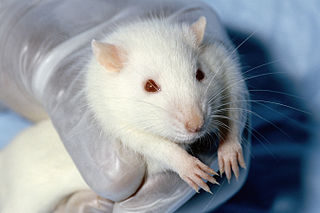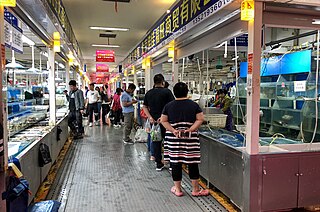 W
WLive export is the commercial transport of livestock across national borders. The trade involves a number of countries with the Australian live export industry being one of the largest exporters in the global trade. According to the Australian Bureau of Statistics, exports of live sheep rose 21.4% and live calves increased 9.7% between March 2017 and March 2018. During 2017 alone, Australia exported 2.85 million living animals in shipping containers and airplanes. The expansion of the trade has been supported by the introduction of purpose-built ships which carry large numbers of animals. The amount of livestock exported from the European Union grew to nearly 586m kilograms between 2014 and 2017, a 62.5% increase during the time period.
 W
WThe live fish trade can refer to the live food fish trade or to the ornamental fish trade. The fish can come from many places, but most comes from Southeast Asia.
 W
WA microchip implant is an identifying integrated circuit placed under the skin of an animal. The chip, about the size of a large grain of rice, uses passive radio-frequency identification (RFID) technology, and is also known as a PIT tag. Standard pet microchips are typically 11–13 mm long and 2 mm in diameter.
 W
WThe international trade in parrots is a lucrative enterprise, and forms an important part of the international wildlife trade. As parrots have become increasingly endangered, many countries have placed restrictions on the trade and/or prohibited the trade altogether. Despite the restriction on trade in many countries however, the market still operates both legally and illegally.
 W
WThe international trade in primates sees 32,000 wild non-human primates (NHPs) trapped and sold on the international market every year. They are sold mostly for use in animal testing, but also for food, for exhibition in zoos and circuses, and for private use as companion animals.
 W
WTrade Me is New Zealand's largest online auction and classifieds website. Managed by Trade Me Ltd., the site was founded in 1999 by New Zealand entrepreneur Sam Morgan, who sold it to Fairfax in 2006 for NZ$700 million. Trade Me was publicly listed as a separate entity on 13 December 2011 under the ticker "TME". In May 2019, Trade Me was acquired by private equity firm Apax Partners for NZ$2.56 billion. Trade Me Ltd also operates several sister websites including FindSomeone and Holiday Houses.
 W
WA wet market is a marketplace selling fresh meat, fish, produce, and other consumption-oriented perishable goods in a non-supermarket setting, as distinguished from "dry markets" that sell durable goods such as fabrics and electronics. These include a wide variety of markets, such as farmers' markets, fish markets, and wildlife markets. Not all wet markets sell live animals, but the term wet market is sometimes used to signify a live animal market in which vendors slaughter animals upon customer purchase, such as is done with poultry in Hong Kong. Wet markets are common in many parts of the world, notably in China, Southeast Asia, and South Asia. They often play critical roles in urban food security due to factors of pricing, freshness of food, social interaction, and local cultures.
 W
WIn China, wet markets are traditional markets that sell fresh meat, produce, and other perishable goods. They are the most prevalent food outlet in urban regions of China but have faced increasing competition from supermarkets. Since the 1990s, wet markets in large cities have been predominantly moved into modern indoor facilities.
 W
WIn Hong Kong, wet markets are traditional markets that sell fresh meat, produce, and other perishable goods. There are wet markets in most neighbourhoods of Hong Kong and they often cater to older residents, low-income residents, and domestic workers. They are regulated by the Food and Environmental Hygiene Department (FEHD).
 W
WWildlife trade refers to the commerce of products that are derived from non-domesticated animals or plants usually extracted from their natural environment or raised under controlled conditions. It can involve the trade of living or dead individuals, tissues such as skins, bones or meat, or other products. Legal wildlife trade is regulated by the United Nations' Convention on International Trade in Endangered Species of Wild Fauna and Flora (CITES), which currently has 183 member countries called Parties. Illegal wildlife trade is widespread and constitutes one of the major illegal economic activities, comparable to the traffic of drugs and weapons. Wildlife trade is a serious conservation problem, has a negative effect on the viability of many wildlife populations and is one of the major threats to the survival of vertebrate species. The illegal wildlife trade has been linked to the emergence and spread of new infectious diseases in humans, including emergent viruses. Global initiative like the United Nations Sustainable Development Goal 15 have a target to end the illegal supply of wildlife.